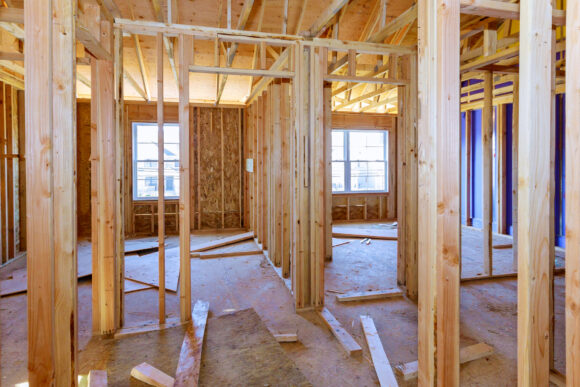A home builder is not covered under the property damage coverage in its commercial liability policy for construction defects for which it was responsible.
A three-judge panel of the Massachusetts Appeals Court has held for the first time that “construction defects, standing alone, do not constitute property damage within the meaning of a commercial general liability policy.”
The question before the appellate court justices was whether the costs of repairing or removing construction defects constitute “damages because of property damage” within the meaning of a commercial general liability policy.
In answering that construction defects are not property damage, the appeals court upheld a declaratory judgment by an Essex County Superior Court in favor of the insurer, Main Street America (MSA).
MSA’s insured, R.C. Havens, was the general contractor for the construction of a single-family home in Marblehead. As the project neared completion, the homeowners discovered substantial issues with the quality of the construction, a number of which compromised the structural integrity of the home. A portion of a structural post that was supposed to run from the roof to the basement was missing, and partition walls, sill plates, and support beams were installed incorrectly. As a result, some partition walls were improperly weight bearing.
The homeowners’ structural engineer concluded that fixing the structural problems would require extensive work, including installing the missing post, doubling up the floor joists under the partition walls, and jacking up the floors. Separate from these structural faults, counter flashing was not installed on the posts of a roof deck; the home’s siding was not fastened correctly; and there were numerous problems with the installation of the home’s metal roof. The roof deck, siding, and metal roof all had to be replaced to fix the construction defects.
A jury found the contractor liable and awarded the homeowners $114,159 for the structural defects, $14,207 for the roof deck, $37,000 for the siding, and $52,500 for the metal roof. The jury also awarded the homeowners $925 for problems with the home’s insulation, $18,036 for mold damage, $8,430 for loss of use of their home during repair work, and $27,276 for costs of investigating the defects.
Following the trial on the contractor’s liability, the homeowners and the contractor’s insurer, MSA, cross-moved for summary judgment on whether MSA had a duty to indemnify R.C. Havens. Among the issues raised was whether the homeowners’ losses were covered under the policy as “property damage” caused by an “occurrence.” A Superior Court judge ruled for MSA on all the issues. After a declaratory judgment was entered for MSA, the homeowners appealed.
The policy required MSA to “pay those sums that the insured becomes legally obligated to pay as damages because of property damage to which this insurance applies.” The policy defined “property damage” to mean “physical injury to tangible property, including all resulting loss of use of that property” or “loss of use of tangible property that is not physically injured.”
The appeals court found that these words, construed in a “reasonable and practical way,” did not provide coverage for sums that R.C. Havens became legally obligated to pay as damages for the construction defects.
While the issue was one of first impression in Massachusetts, other jurisdictions have held that costs to repair or remove construction defects are not covered as “damages because of property damage” under commercial general liability policies. These courts have reasoned that commercial general liability policies define “property damage” as “physical injury,” which suggests the property was “not defective at the outset, but rather was initially proper and injured thereafter,” the appeals court noted citing a Connecticut ruling.
The appeals court further noted that because faulty construction is defective at the outset, other jurisdictions have distinguished between “claims for the costs of repairing or removing construction defects, which are not claims for property damage, and claims for the costs of repairing damage caused by construction defects, which are claims for property damage.”
The appeals court found a simple example convincing: an improperly installed window would not be “property damage,” but resulting water damage to the surrounding wall would be. The court said that was “persuasive and consistent with the general purpose of commercial general liability policies.”
“Commercial general liability policies provide coverage ‘for tort liability for physical damages to others and not for contractual liability of the insured for economic loss because the product or completed work is not that for which the damaged person ‘bargained,'” states the appeals court panel opinion written by Associate Justice Sookyoung Shin.
Accordingly, the court held, “construction defects, without more, do not constitute property damage within the meaning of a commercial general liability policy.”
The homeowners had wanted the insurance to cover what they said was damage caused by the construction defects. However, the court dismissed this argument because the summary judgment, the jury verdict, the jury award and the sums the homeowners submitted were for repairing or removing the defects themselves, not for damage such as cracks, water damage or mold they may have caused.
Topics Commercial Lines Business Insurance Property Liability Construction
Was this article valuable?
Here are more articles you may enjoy.



 US Appeals Court Rejects Challenge to Trump’s Efforts to Ban DEI
US Appeals Court Rejects Challenge to Trump’s Efforts to Ban DEI  Allstate CEO Wilson Takes on Affordability Issue During Earnings Call
Allstate CEO Wilson Takes on Affordability Issue During Earnings Call  ‘Structural Shift’ Occurring in California Surplus Lines
‘Structural Shift’ Occurring in California Surplus Lines  AIG’s Zaffino: Outcomes From AI Use Went From ‘Aspirational’ to ‘Beyond Expectations’
AIG’s Zaffino: Outcomes From AI Use Went From ‘Aspirational’ to ‘Beyond Expectations’ 

